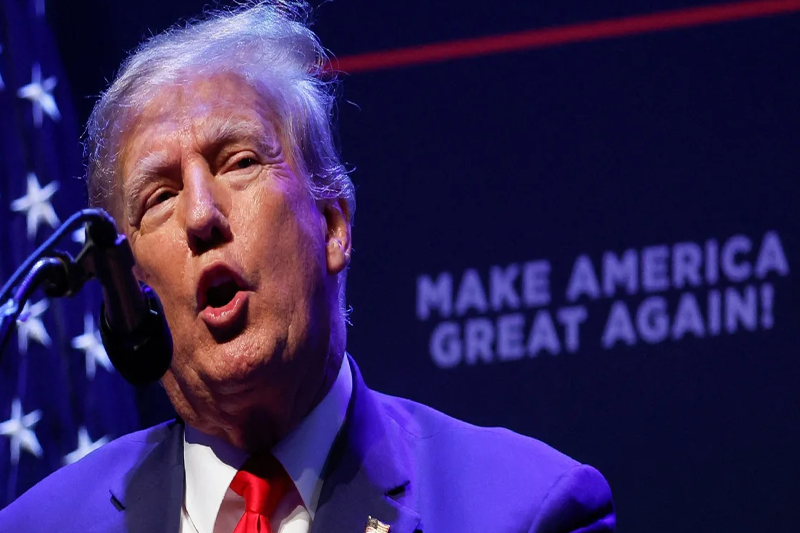
Trump Administration Puts “Patriotic Education” at Forefront of Federal Grant Priorities
In a controversial policy move that has ignited national debate, the Trump administration has unveiled a wide-reaching initiative to prioritize “patriotic education” in the distribution of federal education grants. Officials frame the new direction as an effort to instill civic pride and national identity among students, while critics say it represents an alarming shift toward politically influenced historical narratives.
Announced in mid-September 2025, the initiative reflects the administration’s broader strategy to align public education with its “Make America Great Again” agenda. It not only redirects funding but reshapes who controls it, placing political appointees at the helm of grant approvals and forming coalitions with ideologically aligned civic groups.
Framing the Initiative: Promoting Civic Pride
The U.S. Department of Education defended the policy in a public statement, describing patriotic education as a method to teach American history in a way that is “accurate, honest, and inspiring.” According to the department, the aim is to emphasize national achievements alongside historical awareness, encouraging students to feel pride in their country while developing a sense of civic responsibility.
This framing is consistent with the administration’s message that public education should uplift and unify rather than focus on division and critique. “We want our children to learn what’s great about America—not just what went wrong,” said one senior official involved in the rollout.
Critics Say It's About Narrative Control, Not Education
However, the response from historians, educators, and civil rights advocates has been swift and sharply critical. Many view the initiative as a political attempt to rewrite history.
“This is about controlling the narrative, not educating students,” said Dr. Marissa Lane, a historian and civil rights scholar. “Sanitizing history under the banner of patriotism undermines the very lessons that define our democracy.”
Opponents are especially concerned that the policy could gloss over critical episodes in U.S. history, such as systemic racism, civil rights struggles, Indigenous displacement, and social movements, in favor of a more celebratory tone. They argue this not only distorts the past but limits students' ability to engage critically with current events.
Executive Order Tightens Federal Oversight
The push for patriotic education follows a recent executive order signed by President Trump in August 2025, which significantly tightened oversight over federal education grants. Under the new directive, political appointees now have final say over which programs receive funding—a sharp departure from the previous practice of peer-reviewed grant evaluations.
This centralization of control has raised further concerns among education experts, who say it compromises the independence of academic institutions and nonprofit organizations that rely on federal funding to develop educational content.
In parallel, the administration has launched a new civics education coalition that includes over 40 organizations aligned with Trump’s political movement. This coalition is expected to play a key role in evaluating and implementing programs that meet the standards of patriotic education.
Civil Rights Advocates: Free Expression at Risk
Civil rights organizations have been among the most vocal opponents of the initiative, warning that it could threaten academic freedom and stifle critical thinking in classrooms and public institutions.
“Educational institutions are meant to challenge students, not indoctrinate them,” said Malik Thompson, director of the American Civil Liberties Education Fund. “This approach risks erasing difficult truths and promoting a one-dimensional narrative of American history.”
Groups have also expressed concern that the initiative may disproportionately affect marginalized communities whose histories are often underrepresented in mainstream curricula. By prioritizing “patriotic” narratives, they argue, these stories risk being further sidelined or completely omitted.
Supporters Push Back: “Inspiring, Not Erasing”
Supporters of the initiative argue that the goal is not to whitewash history, but to teach it in a way that inspires students and fosters unity.
“Patriotic education highlights the values and achievements that define our country,” said Rebecca Harris, a spokesperson for one of the coalition’s partner groups. “It is not about erasing history—it is about teaching it in a way that empowers students to be proud of their nation.”
Advocates believe this approach is long overdue and counters what they see as a trend toward overly negative or divisive portrayals of America in public education. They contend that highlighting national successes does not inherently negate the need for discussing historical injustices.
Long-Term Implications: Shaping Generations
As grant applications open under the new guidelines, educators, nonprofits, and civic organizations are now facing intense scrutiny regarding the content and tone of their educational programs. Many are bracing for an ideological litmus test in order to secure funding.
Education policy analysts warn that the implications of this initiative could be far-reaching and long-lasting. By influencing the curriculum taught in schools, museums, and civic institutions, the patriotic education policy could reshape how millions of young Americans understand their country's history—potentially for decades.
“This isn’t just a funding shift—it’s a national cultural pivot,” said one education analyst. “The stories we tell about our past shape how we act in the future.”
Conclusion
The Trump administration’s push to fund “patriotic education” is more than a change in budget priorities—it’s a broader statement about the role of history, memory, and national identity in public education. While supporters see it as a necessary corrective to what they perceive as a negative academic narrative, critics argue it’s a dangerous move toward political control of the classroom.
As the debate unfolds, one thing is clear: what and how we teach our history is no longer just an educational issue—it’s a political battleground with deep implications for the future of American democracy.



